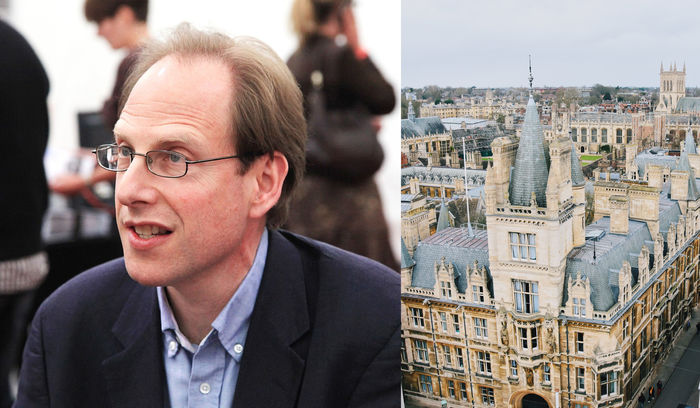Students slam don over autism talk
Professor Simon Baron-Cohen’s presentation of autistic and neurotypical people was criticised as ‘binary’ and ‘damaging’ following psychology society talk

Students have criticised Professor Simon Baron-Cohen over a “binary presentation of autistic and neurotypical people” following a talk at Trinity College.
During the talk, Baron-Cohen discussed an autistic adult, stating that “Those who know him say he is more like a four-year-old in terms of his cognitive development”.
At the beginning of the talk, Baron-Cohen highlighted the “really important concept” of neurodiversity, quoting Temple Grandin’s “I am different, not less” slogan.
However, one psychological and behavioural sciences student said, “I’m not sure the sentiment of different not less was maintained throughout,” with another stating that they “definitely went in having a more negative view about him than I did going out”.
Some students in attendance did compliment the talk, saying it was “engaging and well done”. Another student said: “I’m very thankful for his acceptance of neurodiversity”.
Baron-Cohen is head of the University’s Autism Research Centre, with the event being advertised as a talk on “The Pattern Seekers: How autism drives human invention”. It was based heavily on Baron-Cohen’s previous research into the Systematizing Mechanism and Empathy Circuit.
Baron-Cohen discussed how the ‘Systemizing Mechanism’ found in autistic people enabled “generative invention” throughout human history. The poster advertising the talk said that society owes a “huge debt to autistic people for the contribution that their genes have played,” with Baron-Cohen using examples of famous autistic individuals who, in the talents they display, may be employing the Systemizing Mechanism.
Baron-Cohen, known for his Spectrum 10k project, which asked 10,000 autistic people and their families to submit DNA samples for testing, has come under fire by groups such as Stop Spectrum 10k, who said that there is a “‘historic mistrust‘” of the researcher within academic and autism advocacy circles. One student characterised this project as “exceptionally dangerous”.
During the event, he defended his research into genetic causes for autism, saying that the ARC “wanted to contribute to the international effort” and highlighted that, in the review held for public feedback, some autistic people welcomed the study, especially regarding how it may explain gastro-intestinal issues that autistic people face. This reasoning has however been described as “very lacklustre” by one student.
Baron-Cohen dismissed claims that such research could be used for eugenic purposes, saying that eugenics is “part of the past”. In response, an autistic PhD student has said that “discovering autism’s genetic component provides no benefit to autistic people’s daily lives whatsoever”.
They continued: “Once the knowledge of autism’s genetic component is established, eugenics against autistic people at some point in the future is inevitable.”
Professor Baron-Cohen said: “I am committed to the view that autism is both a disability and a difference, but that autistic people should be treated as equal, not less, and we should always strive to promote inclusion and reduce stigma towards autistic people.”
“Genetics research is only ‘dangerous’ if there are no checks and balance and oversight by the autism community. In our research we ensure that autistic people have a majority voice in data sharing of genetic data,” he continued.
“We are aware that some autistic people are not enthusiastic about genetics research, whilst others are very supportive of it. This reflects the diversity of views among any community, including the autism community,” he added.
Baron-Cohen also said: “None of our results are binary. They show overlapping bell curves between autistic and non-autistic people. In this sense, they reflect that neurodiversity itself is on a spectrum of individual differences, and there is no point along these that divide autistic and non-autistic people.”
Newnham Psychology Society and Trinity Psychology Society were contacted for comment.
 News / SU reluctantly registers controversial women’s soc18 December 2025
News / SU reluctantly registers controversial women’s soc18 December 2025 News / CUP announces funding scheme for under-represented academics19 December 2025
News / CUP announces funding scheme for under-represented academics19 December 2025 Features / Should I stay or should I go? Cambridge students and alumni reflect on how their memories stay with them15 December 2025
Features / Should I stay or should I go? Cambridge students and alumni reflect on how their memories stay with them15 December 2025 Fashion / The art of the formal outfit 18 December 2025
Fashion / The art of the formal outfit 18 December 2025 News / Dons warn PM about Vet School closure16 December 2025
News / Dons warn PM about Vet School closure16 December 2025










